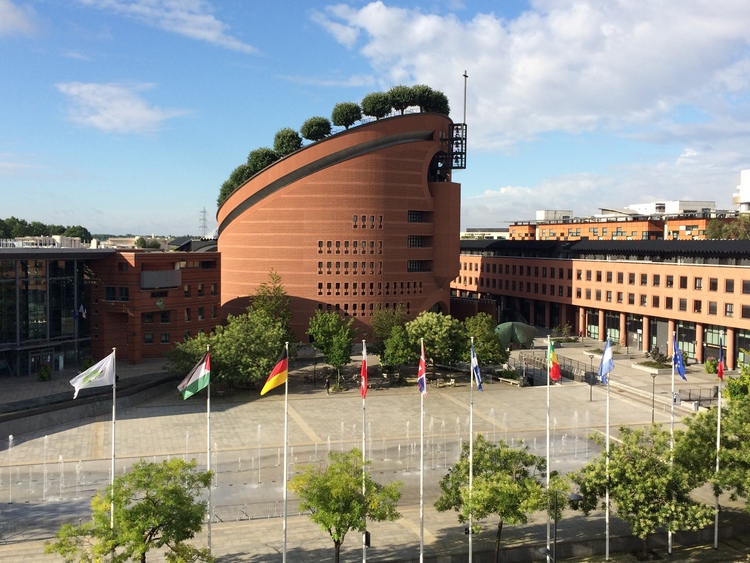What fuels lasting personal change?
I’m endlessly fascinated by motivation, habits and processes. As I’m gearing up to start coaching (in the context of movement, at the intersection of mindfulness and longevity) I’ve been thinking a lot about how to help people find their motivation. I’ve realized that motivation, habits and processes are related to three other things I write often about: Discovery, reflection, and efficacy. I think there’s much to explore in the relationship.
There’s more than one answer to this question, but an important part of the story lies deep in our history. Based on evolutionary theory and psychological research, I have come to believe that human evolution has led to a pair of competing psychological needs that must be balanced in order for individuals to experience lasting happiness. These needs reflect two key goals our distant ancestors had to achieve: to bond with others for their mutual protection, and to develop personal skills to make them valuable to their group and potential mates. In service of these goals, our ancestors evolved two corresponding needs that still drive us today: from childhood through to old age, humans have a need for connection and a need for autonomy.
~ William von Hippel, from For a happier life, we must balance two old psychological needs
Discovery-reflection-efficacy is an abstract, conceptual framework: I discover things about myself, I reflect on how those discoveries integrate with (change or possibly even invalidate) what I already know, and then I affect reality (by changing my thinking, my actions, or the literal outside world.) Motivations-habits-processes is a practical roadmap for achieving intentional changes.
Motivation is what gets you started. Habit is what keeps you going.
~ Jim Rohn
Discovering a personal trait I might prefer to change suggests a motivation. Reflecting on that something and the possible change suggests which habits of thought or action need changing. Efficacy is where thought becomes reality, and worthwhile processes are those which sustain the effect.
This isn’t a rejection of reason, but a recognition of its limits and its partnership with emotion in shaping human understanding and motivation. […] In this light, art and music are not mere diversions or entertainments. They are profound expressions of human experience, written and interpreted in the language of emotion. They speak to truths that logic alone cannot fully capture or convey. And it is precisely this emotional resonance that makes art such a powerful force in shaping human consciousness.
~ Mike Brock, from The Hollow Men Of Silicon Valley
Our ability to reason plays a critical role in reflection and a more subtle role in discovery and efficacy. Unfortunately, it often gets a bad rap. That’s a shame, because we’re at our best when we can balance diverse, amazing abilities: our senses, emotions, reasoning, creativity, imagination and empathy. And the more I think about this, the longer that list grows.
You don’t have to be a fantastic hero to do certain things – to compete. You can be just an ordinary chap, sufficiently motivated to reach challenging goals.
~ Edmund Hillary
We each are continuously evolving. It’s fantastic being able to begin with some interesting and exciting idea. After that, all we need to be, is an ordinary chap, sufficiently motivated to change our habits and set up supporting processes. Those habits and processes, if you want to be intentional about your change, can only be built using your ability to reason.
Decide what to change and get started. It’s not enough to believe that positive change is possible; you also need a plan to make it happen, which accurate self-knowledge can facilitate. Some self-improvement goals are straightforward, such as becoming more skilled at your job or a better listener to your partner. But a more fundamental change to who you are as a person is also possible.
~ Arthur C. Brooks, from The Key to Critical Self-Awareness
Sages through the ages have written many pages of phrases—”Man plans; God laughs.” “Plans are worthless, but planning is everything.” “No plan survives contact with the enemy.” It’s clearly important to plan, but even more important not to cling to the plan.
[…] it is not true that I am self-made. Like everyone, to get to where I am, I stood on the shoulders of giants. My life was built on a foundation of parents, coaches, and teachers; of kind souls who lent couches or gym back rooms where I could sleep; of mentors who shared wisdom and advice; of idols who motivated me from the pages of magazines (and, as my life grew, from personal interaction).
~ Arnold Schwarzenegger
Earlier, I mentioned “discovering a personal trait I might prefer to change.” When we say someone (or something) motivates us, it’s most often because we’ve seen something in ourselves worth changing. But the most powerful motivations appear when we discover a new-to-us trait. That discovery feels like shining a clarifying light into a shadowed corner of ourselves.
So, I guess I should say, “I’m not mad, I’m just disappointed.” And I know it’s not your fault; you’re the bad boy that mothers warn their daughters about (even though they married one!). Motivation, I’m gonna teach the Rebellion how to deal with you, properly.
~ Steve Kamb, from Motivation: You’re Doing It Wrong.
Imagine you’ve just discovered some trait that you don’t currently exhibit. A great runner. A serene person. A renowned writer. A builder of things. I’ve no idea what to suggest to motivate you.
(Pause here until you find something you actually think is motivating.)
Thinking of that trait, read carefully and say these three sentences out loud:
“I could be that?”
“I could be that.”
“I could be that!”
Until next time, thanks for reading.
ɕ
